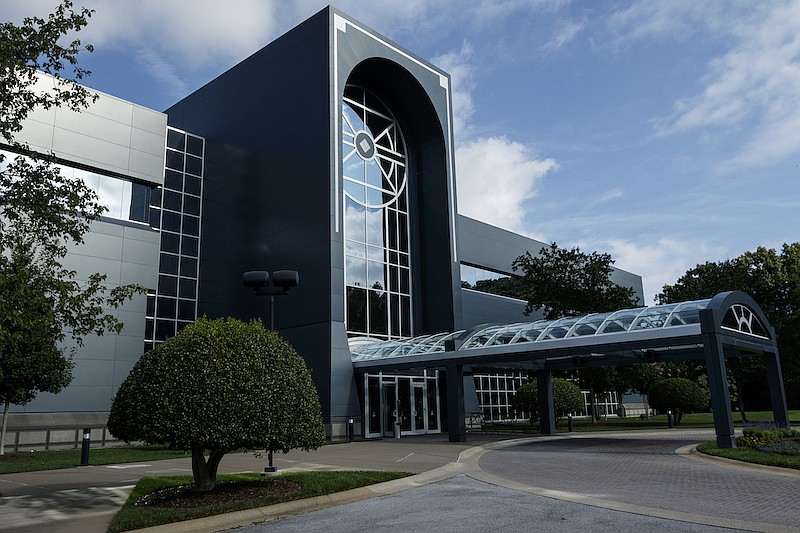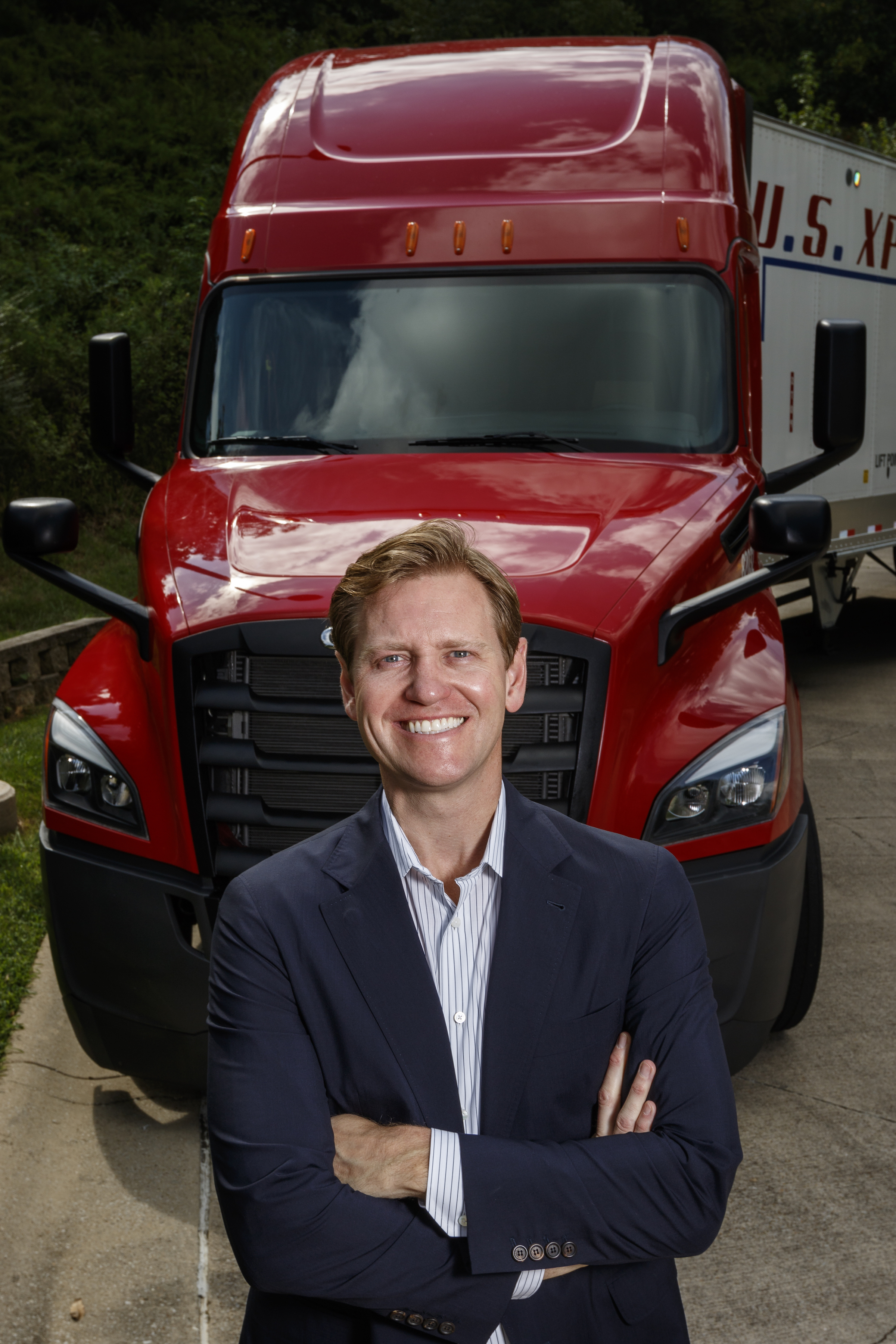U.S. Xpress Enterprises CEO Eric Fuller says he was initially skeptical that most workers could get their job done at home.
So when the trucking giant began studying how to do remote work for its 1,400 office workers when the coronavirus pandemic hit in mid March, Fuller thought most workers sent home in March would be back in the office by May 1.
But nearly six months after U.S. Xpress shifted workers out of its sprawling headquarters along Interstate 75 in Ooltewah, the workers are still at home doing their jobs and perhaps half of them may never return to the office.
"Prior to this pandemic, I had never been a big believer in working from home," Fuller said in an interview Wednesday during the EXPO Chattanooga sponsored by the Chattanooga Area Chamber of Commerce. "Occasionally, we would have people ask if they could work from home and our answer was usually no. I thought we couldn't effectively manage people if they were working from home."
But when the pandemic forced U.S. Xpress to empty its offices, order more than 600 laptop computers and shift 1,400 workers from the company's headquarters, Fuller quickly changed his mind about remote work.
"What we found is that our production actually got better," he said. "We put together a very rigorous schedule with daily touch points with each one of our employees working at home and we planned regular department meetings over the internet at least once a week."
Improving communications
The changes led to better communication among workers and bosses with remote work sites than when everyone was working in the same building.
"What I believe now is that proximity (in the office in the past) let people to think they were communicating when they were not," Fuller said. "Now we are forcing better communication and our employees say they have never been more connected and communicated with than they are now."
Fuller said U.S. Xpress now plans on keeping most of its corporate staff working at home until at least January and many of those workers are likely to continue to work from home indefinitely.
"I have learned that you can work from home so we are in the process now of trying to figure out our work strategy post COVID," Fuller said. "We may have 40, 50 or even 60 percent of our workforce staying home."
Many major technology companies, including Amazon, Facebook and Twitter, have already indicated that many of their workers can permanently work from home. In Chattanooga, other major office employers, including BlueCross BlueShield of of Tennessee, the Tennessee Valley Authority and HomeServe, continue to have a majority of their staffs working from home.
Driver-less trucks coming
The shift in where employees do their jobs has come as business has grown for U.S. Xpress during the pandemic, Fuller said. Despite the overall economic slowdown, U.S. Xpress drivers have remained busy transporting food, staples and other items that have sold well during the pandemic, Fuller said.
Overall, U.S. Xpress has nearly 10,000 drivers and other employees, including about 1,400 in Chattanooga.
Fuller said drivers on the road are also likely to see major changes ahead with the growth of autonomous vehicles, electric-powered trucks and hydrogen fuel-powered trucks.
"We believe we could have an autonomous truck on the road within three years," Fuller said. "It won't suddenly be every truck on the road operating without a driver, but there will be trucks operating on the road within the next three to five years completely autonomously either without a driver or a driver who is only there from a safety perspective."
Fuller said he rode in a TuSimple truck operated autonomously with only a driver sitting behind the wheel as a backup through Tuscon, Arizona.
"The technology is there and you are going to see that rolled out over the next few years," Fuller said.
Contact Dave Flessner at dflessner@timesfreepress.com or at 423-757-6340.

